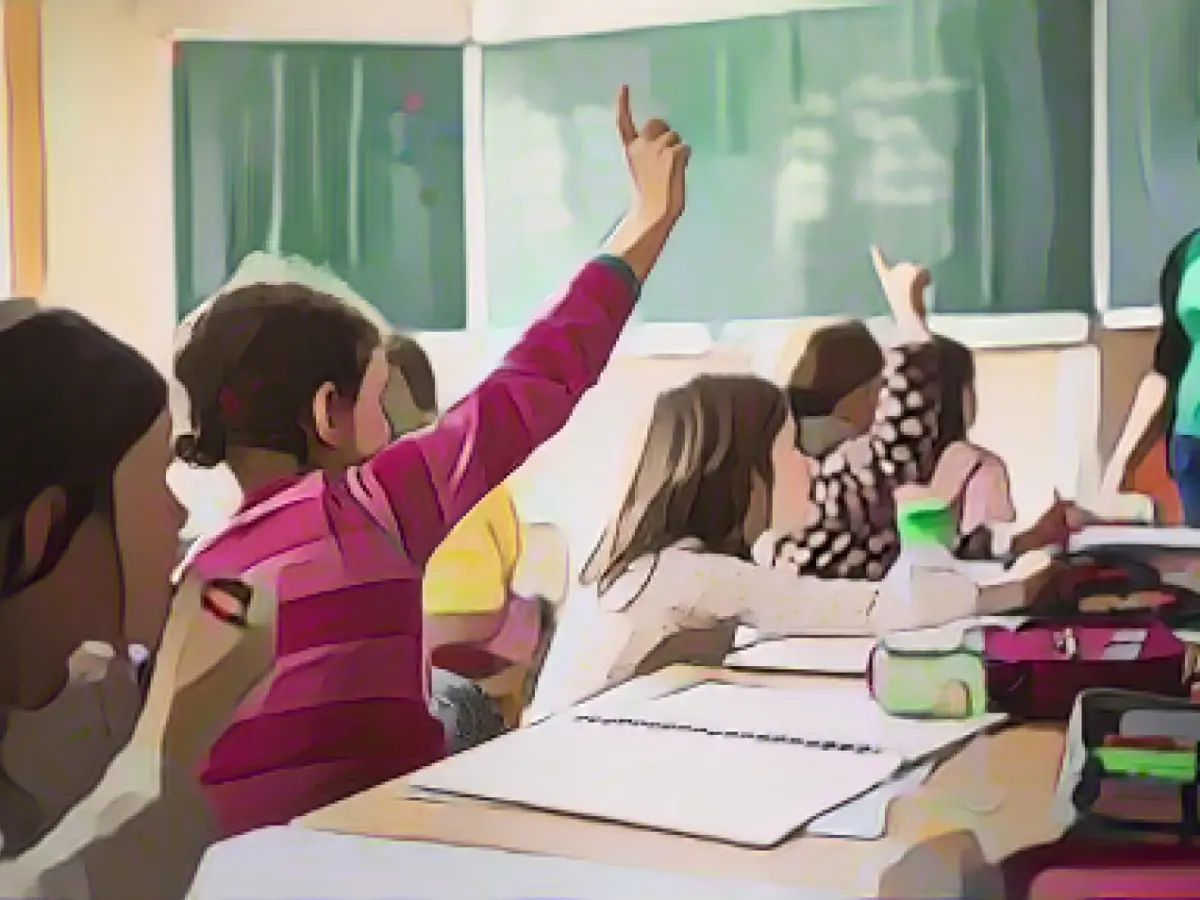Rethinking Education: Why Our System Needs a Change
New Pisa data paints a grim picture of Germany's educational progress. Since the 2018 test, German pupils' performance in mathematics, reading, and natural science has taken a nosedive. Sadly, they are now at a par with 14-year-olds in these subjects.
To make matters worse, the disparity in performance between socially privileged and disadvantaged students is quite stark, especially in mathematics. This issue has long been a concern, but the pandemic and extended home learning periods have further exacerbated the problem.
The German School System's Blind Spots
Germany currently falls in the middle of the OECD education field, with pupils just barely surpassing their peers in natural sciences. While countries like Finland, Netherlands, and many around the world are struggling with their own deterioration, the performance gap between Germany and these top performers is significant. Asia's leading education systems, such as Singapore, Macau, Hong Kong, Korea, and Japan, dominate the top of the list. Even Estonia and Canada have left us in the dust in natural sciences, while Ireland boasts superior reading skills.
So, introducing an Asian school system isn't the solution we need. Instead, it's time for Germany to reassess its approach and invest in upgrading our current school system.
Time for Change
Our education system needs a radical overhaul, and it's long overdue. The lack of funding, outdated technology, and a shortage of qualified educators are all holding us back. To attract fresh talent to the profession, we need to reform teacher training programs, making it more appealing and empowering the next generation of educators.
Moreover, education starts long before school. It's crucial we recognize this and address the shortage of specialists in nurseries. Places for socially disadvantaged children should not be scarce.
Germany Can Exceed Expectations
The good news is that we can do better. The Pisa study from 2001 served as a wake-up call, resulting in numerous education initiatives that improved pupils' performance in reading, mathematics, and science. So, the key to success is simply wanting to do better.
To ensure our education system thrives, legislators should prioritize education funding, and the "traffic light" coalition should invest in well-qualified specialists for future job markets. By improving our schools, we ultimately benefit society as a whole.
The Time for Action is Now!
The current situation calls for immediate action. Sunday speeches alone won't suffice. Chancellor Scholz must make schools a top priority, and the "traffic light" coalition must commit to additional education funding. Only by investing in our future leaders can we hope to build a better tomorrow.
Let's not let the disappointing Pisa results discourage us. Instead, let's use this as an opportunity to rethink our approach to education and create a more equitable, innovative, and inclusive system. That way, we can firmly establish Germany as a hub for education excellence.
Enrichment Insights:
- Utilize technology to enhance curriculum and classrooms, ensuring that every student has access to a reliable device and internet connection.
- Implement professional development programs for educators, focusing on critical thinking, technology integration, and cultural sensitivity.
- Strengthen community engagement and support services, such as after-school programs and mentorships, to bridge the gap between socio-economic backgrounds.
- Invest in parental involvement and resources to assist children with remote learning, encouraging them to actively participate in their child's education.
- Encourage mental health support, as disadvantaged students may be disproportionately affected by developmental setbacks due to the pandemic.
- Nurture a stronger sense of pride in the teaching profession to attract more talented individuals to the field, ensuring that being a teacher becomes a desirable career path.
- Develop alternative learning methods for students without internet access or technology to ensure that all students have the opportunity to succeed.
- Implement targeted support programs for disadvantaged students, offering resources, assistance, and opportunities for their academic, social, and emotional growth.





